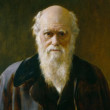Causality and Radioactive Decay
by Dr. Edward Feser
Filed under Science

NOTE: Today we finish our two part series by Dr. Edward Feser exploring questions about science, philosophy, causality, and radioactive decay. You can read the first part here. Now, if there must be causality at the macro level (at the very least in the case of the causal relations between the external world and our perceptual experiences of it), and this causality is not captured in the description of the world that physics itself gives us, then it follows that there... Read More
Fads and Fallacies in the Name of Science
by Dr. Edward Feser
Filed under Science

NOTE: Today we begin a two part series by Dr. Edward Feser exploring questions about science, philosophy, causality, and radioactive decay. We'll share the second part on Wednesday. At the Catholic blog Vox Nova, mathematics professor David Cruz-Uribe writes: "I… am currently working through the metaphysics of St. Thomas Aquinas as part of his proofs of the existence of God… [S]ome possibly naive counter-examples from quantum mechanics come to mind. For instance,... Read More
Can We Know God’s Existence with Certainty?
by Dr. Edward Feser
Filed under The Existence of God

The Catholic Church makes some bold claims about what can be known about God via unaided reason. The First Vatican Council teaches: "The same Holy mother Church holds and teaches that God, the source and end of all things, can be known with certainty from the consideration of created things, by the natural power of human reason… If anyone says that the one, true God, our creator and lord, cannot be known with certainty from the things that have been made, by the natural light... Read More
Cosmology and Causation: Why Metaphysics Matters
by Dr. Edward Feser
Filed under Cosmology, The Existence of God

Several people have asked me to comment on the remarks about causation made by atheist physicist Sean Carroll during his recent debate with William Lane Craig on the topic of “God and Cosmology.” (You’ll find Craig’s own post-debate remarks here.) It’s only fair to acknowledge at the outset that Carroll cannot justly be accused of the anti-philosophy one finds in recent remarks by physicists Stephen Hawking, Lawrence Krauss, and Neil deGrasse Tyson. Indeed, Carroll has... Read More
Nothing’s the Matter with Atheistic Materialism
by Joe Heschmeyer
Filed under Atheism

The central problem with atheistic materialism is nothing, really. Metaphysical nothing, to be exact. Any worldview, including atheism, should be able to give some sort of coherent answer to the rudimentary question of why the universe exists. I don't mean “why does this universe exist rather than another?” I mean, “why does there exist anything, rather than nothing?” Dr. Victor Stenger, in a recent Huffington Post piece on how to debate religion, claims to have an answer. It... Read More
Darwin’s Blind Spot
by Gerard M. Verschuuren
Filed under Evolution

It is a well-known fact that Charles Darwin, the author of that famous, and at the same time infamous, book entitled On the Origin of Species, used to be all over the religious map during his lifetime (1809-1882). Darwin’s personal beliefs remain ambiguous. I think what expresses his ambiguity best is what he wrote in a letter to J.D. Hooker (1861): “My theology is a simple muddle; I cannot look at the universe as the result of blind chance, yet I can see no evidence of beneficent... Read More
What’s the Difference Between Fact and Opinion?
by Dr. Edward Feser
Filed under Belief

NOTE: Dr. Feser's contributions at Strange Notions were originally posted on his own blog, and therefore lose some of their context when reprinted here. Dr. Feser explains why that matters. A reader wrote me to ask: "Please could you elucidate the distinction between a fact and an opinion? I am a secondary school English teacher and there is a lot of rubbish written on this part of the curriculum that would lead to such absurdities as, for example, the atomic weight... Read More
God, Obligation, and the Euthyphro Dilemma
by Dr. Edward Feser
Filed under God's Nature

NOTE: Dr. Feser's contributions at Strange Notions were originally posted on his own blog, and therefore lose some of their context when reprinted here. Dr. Feser explains why that matters. Does God have obligations to us? No, He doesn’t. But doesn’t that entail that He could do just any old thing to us? No, it doesn’t. But how can that be? To see how, consider first another, related false dilemma: the famous Euthyphro problem. The Euthyphro dilemma goes like this:... Read More






